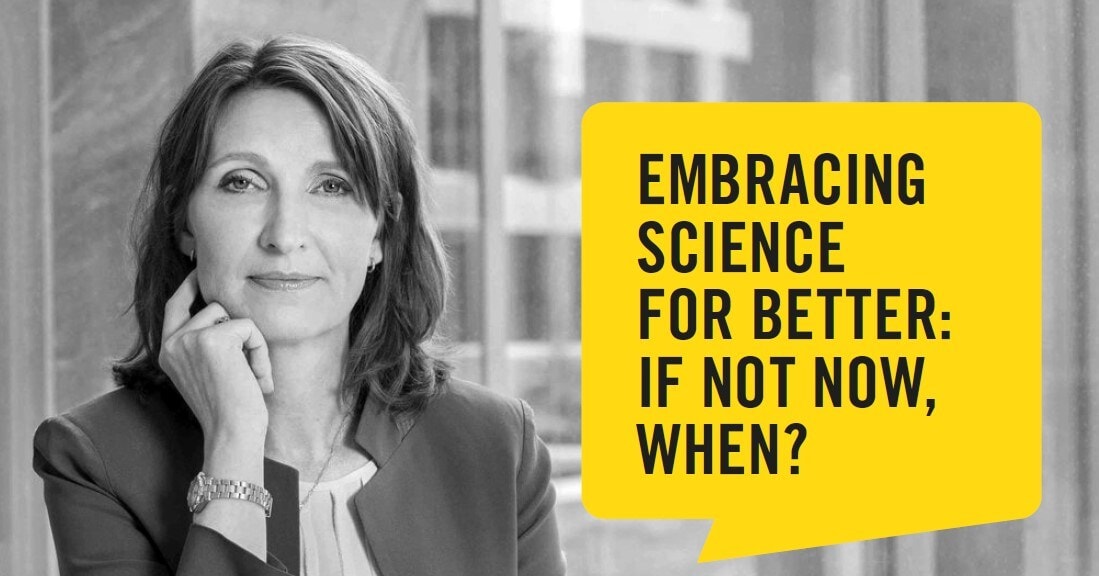Science talks. Are policymakers listening?
People want governments and public authorities to prioritize science and fact over ideology, politics, and unsubstantiated beliefs. This is one of the conclusions of PMI’s latest white paper, “In Support of the Primacy of Science,” the results of which are based on an international survey commissioned by PMI.
One positive finding was that 77 percent of people believe that scientific advancements can provide solutions to the biggest problems facing society. Following on from that, 84 percent say governments should consider the latest scientific information when making policies. Yet the same survey found that only 51 percent of adults surveyed think their government is doing a good job in ensuring science informs its decision-making process.
When science is not used to its full potential, and when regulators do not have access to accurate and non-misleading scientific information, there is the risk of a void developing. This allows fake science, false information, ideology, and politics to take precedence over facts and evidence. Is this really the best environment in which to create policies?
Science should be at the heart of public policy
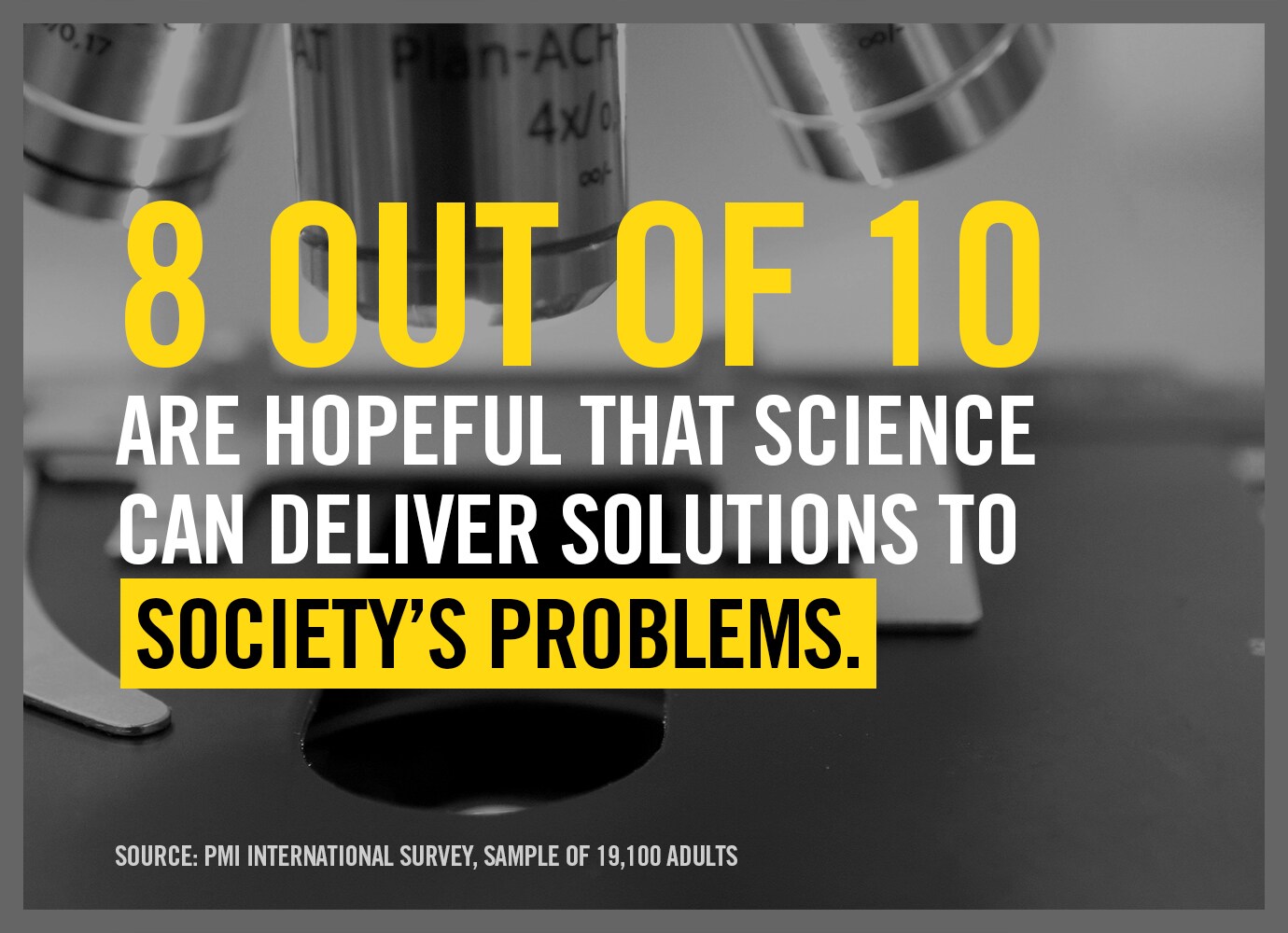
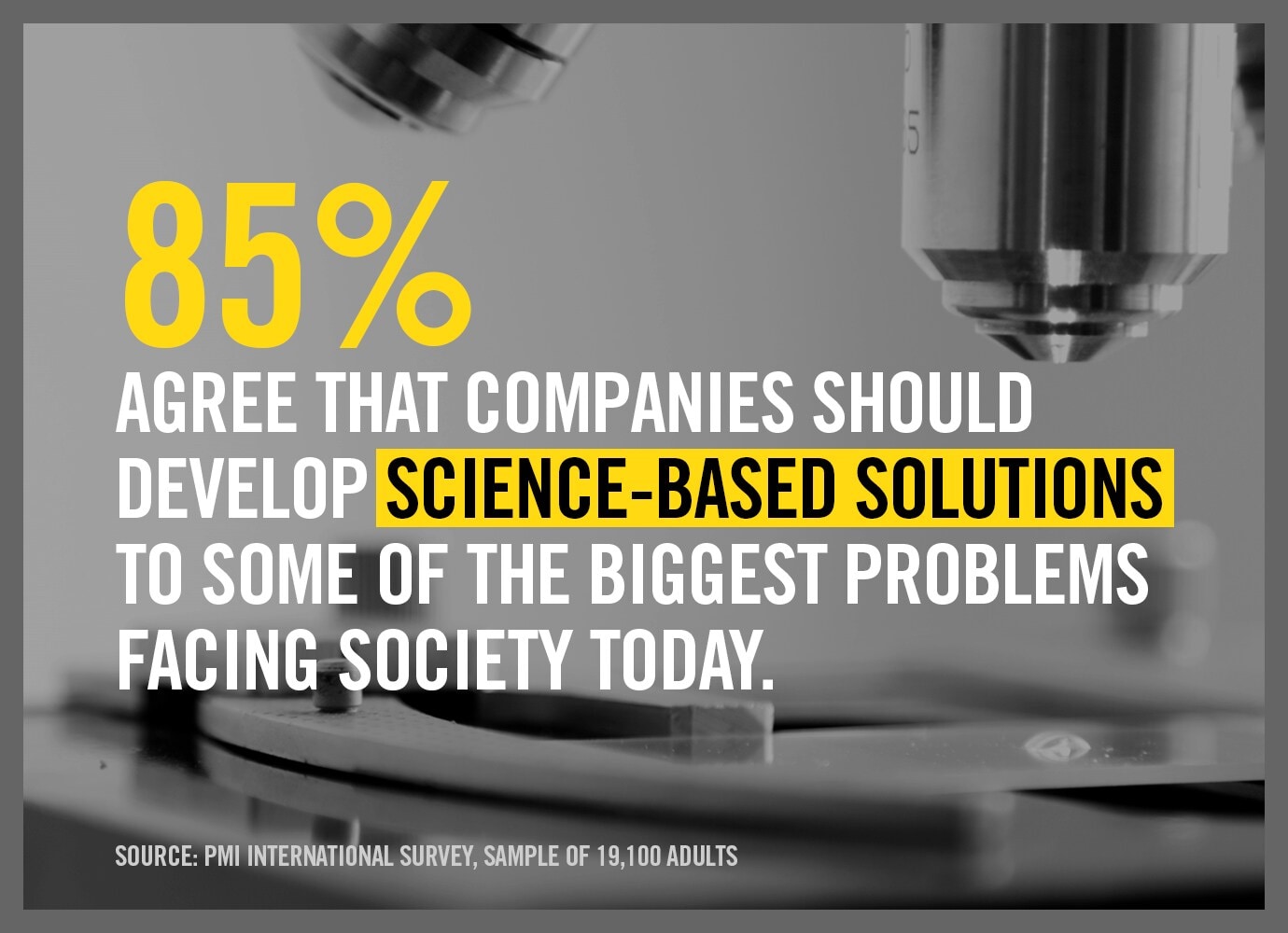
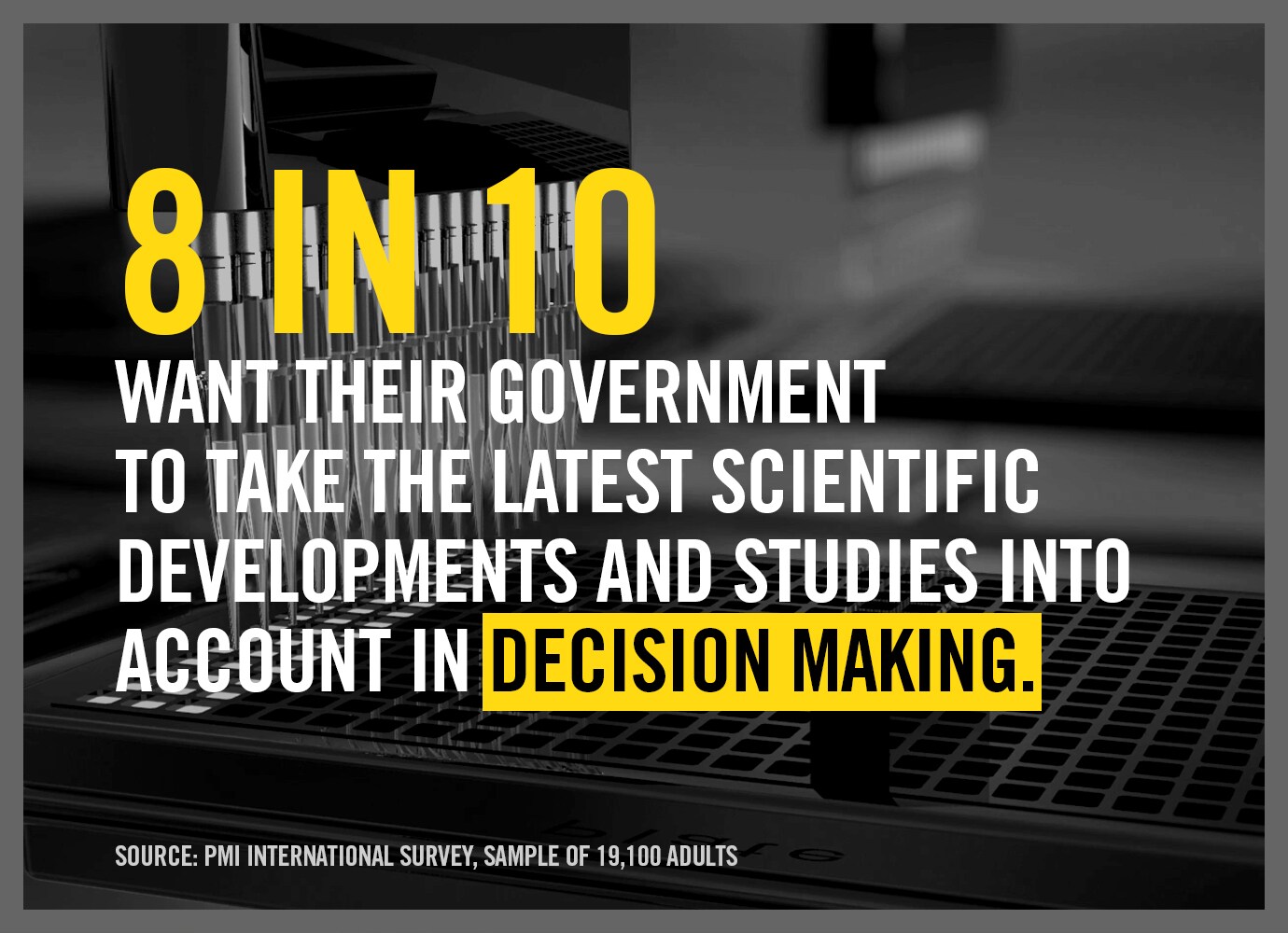
People want decision-making to be led by science
The international survey shows that science has never played a more important role in people’s daily lives than it does today. And when it comes to public policy decisions, the findings suggest that the vast majority of adults (84 percent in the survey) want their government to take the latest scientific evidence into account when making policy decisions.
PMI hopes the white paper will spark a broader conversation about the role of science, the importance of science-based decisions, and the opportunities for progress presented by science.
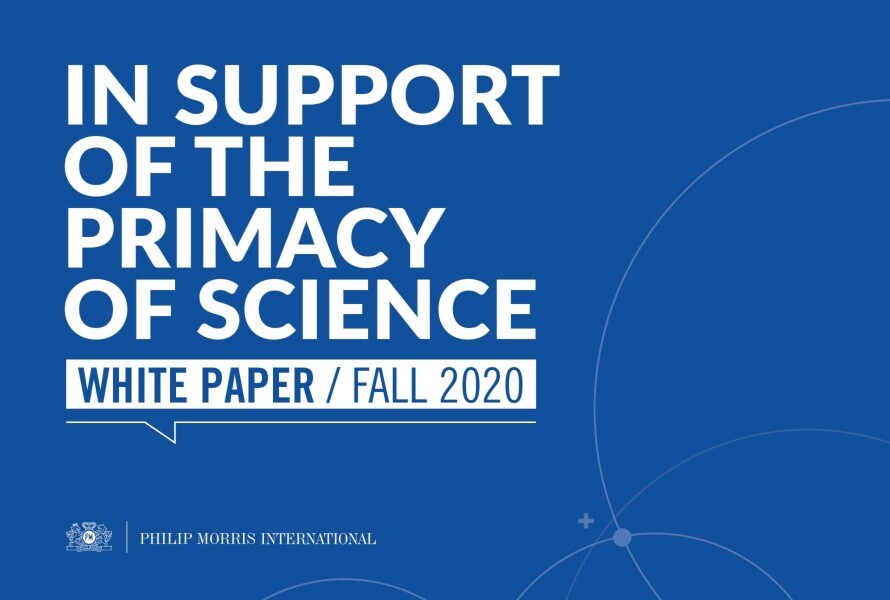
The modern world is underpinned—and made possible—by science. And thanks to the advances in science and technology, smoke-free alternatives that are a better choice than continued smoking are now a reality. The survey’s findings suggest that the vast majority of the public believe that the regulation of these products should be based on scientific evidence. This approach will enable adult smokers who would otherwise continue smoking to access better alternatives to cigarettes.







